India's Public Goods Available For Countries That Need It: Finance Minister In US
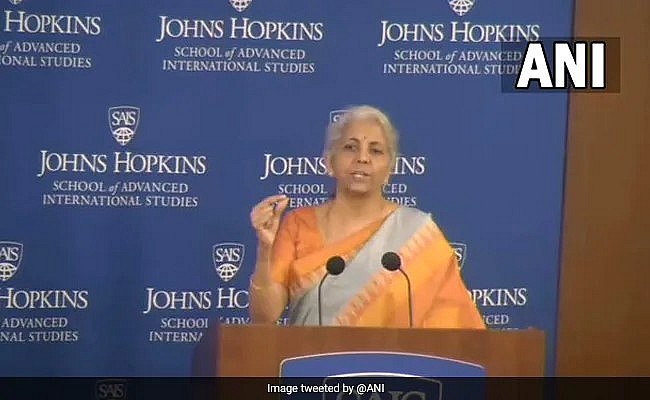 |
| Nirmala Sitharaman also asserted that India has a digital stack that other countries can use. |
Observing digitalisation has become the biggest advantage in India in the last two years, Union Finance Minister Nirmala Sitharaman on Thursday said that India's public goods are available for countries that need them.
Ms Sitharaman said the open-source network that the government of India has created as a public good is helping small and medium industries to scale up their operations.
Standing here I want to reiterate that India's public goods are available for countries which so they need it," Sitharaman told students of the Johns Hopkins School of Advanced International Studies (SAIS) during an interactive session on India's unique Digital Public Goods.
The minister asserted that India has a digital stack that other countries can use.
"So if India today can talk of a digital stack, it's not talking of just payment where UPI, which is today acceptable in Singapore, UAE, and many other countries," she said.
"We are not talking of just Rupay cards, we are not talking of credit cards, we're not talking of checkbook, we're talking of QR codes, which an Android phone, not a smartphone, no apples, even anything else can just go to the business using a QR code, not just in India, but in countries with whom we've already agreed," she said.
The National Payment Corporation of India has already had an agreement signed in France.
So, the apps that are under this larger umbrella of NPCI are all available there, be any other payment portal, the minister said.
"These are not charged for these public goods that we have created." Reiterating that Indian public goods are available in other countries, she said that for instance, during COVID-19 pandemic India created an app wherein one could find the nearest hospital which could give them the vaccination for stores. And that platform would record it and immediately give them a certificate in the phone itself saying you've had this first dose in this first hospital, she said describing the other features of the app.
And as a result of this, Indians travelling abroad didn't have to carry paper for proof of their vaccination.
Now, this app is available for any country which wants it. "Now this is the way in which technology is transforming education," she said.
Responding to a question, the minister said that technology and its adaptation have become the biggest advantage for India in the last two years.
Nirmala Sitharaman also asserted that India has a digital stack that other countries can use.
Washington:
Observing digitalisation has become the biggest advantage in India in the last two years, Union Finance Minister Nirmala Sitharaman on Thursday said that India's public goods are available for countries that need them.
Ms Sitharaman said the open-source network that the government of India has created as a public good is helping small and medium industries to scale up their operations.
Standing here I want to reiterate that India's public goods are available for countries which so they need it," Sitharaman told students of the Johns Hopkins School of Advanced International Studies (SAIS) during an interactive session on India's unique Digital Public Goods.
The minister asserted that India has a digital stack that other countries can use.
"So if India today can talk of a digital stack, it's not talking of just payment where UPI, which is today acceptable in Singapore, UAE, and many other countries," she said.
"We are not talking of just Rupay cards, we are not talking of credit cards, we're not talking of checkbook, we're talking of QR codes, which an Android phone, not a smartphone, no apples, even anything else can just go to the business using a QR code, not just in India, but in countries with whom we've already agreed," she said.
The National Payment Corporation of India has already had an agreement signed in France.
So, the apps that are under this larger umbrella of NPCI are all available there, be any other payment portal, the minister said.
"These are not charged for these public goods that we have created." Reiterating that Indian public goods are available in other countries, she said that for instance, during COVID-19 pandemic India created an app wherein one could find the nearest hospital which could give them the vaccination for stores. And that platform would record it and immediately give them a certificate in the phone itself saying you've had this first dose in this first hospital, she said describing the other features of the app.
And as a result of this, Indians travelling abroad didn't have to carry paper for proof of their vaccination.
Now, this app is available for any country which wants it. "Now this is the way in which technology is transforming education," she said.
Responding to a question, the minister said that technology and its adaptation have become the biggest advantage for India in the last two yea
"In India, in the last two years, digitalisation has become the biggest advantage. And people are the reason for the way in which they have adapted it," she said.
Recommended
 World
World
"Great Leader": JD Vance Lauds PM Modi During His India Visit
 World
World
Trump’s Tariff Pause: A Strategic Move from “The Art of the Deal”?
 World
World
"Indian Navy's participation in AIKEYME exercise matter of great happiness": Admiral Dinesh Kumar Tripathi
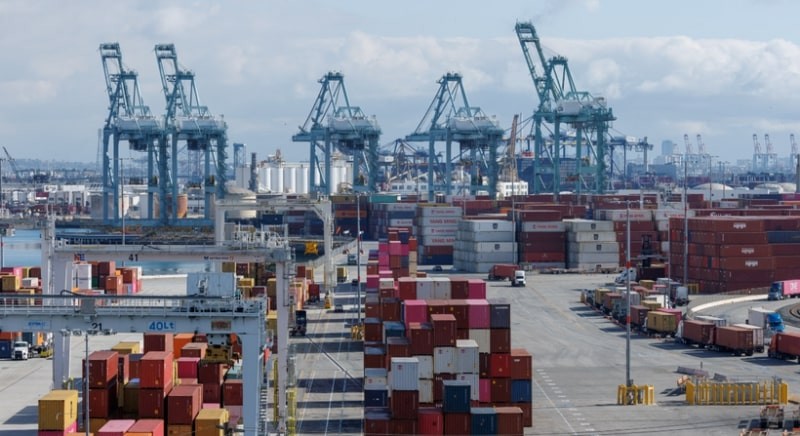 World
World
ASEAN and US Tariff Dilemma: Hybrid Approach to Global Trade Tensions
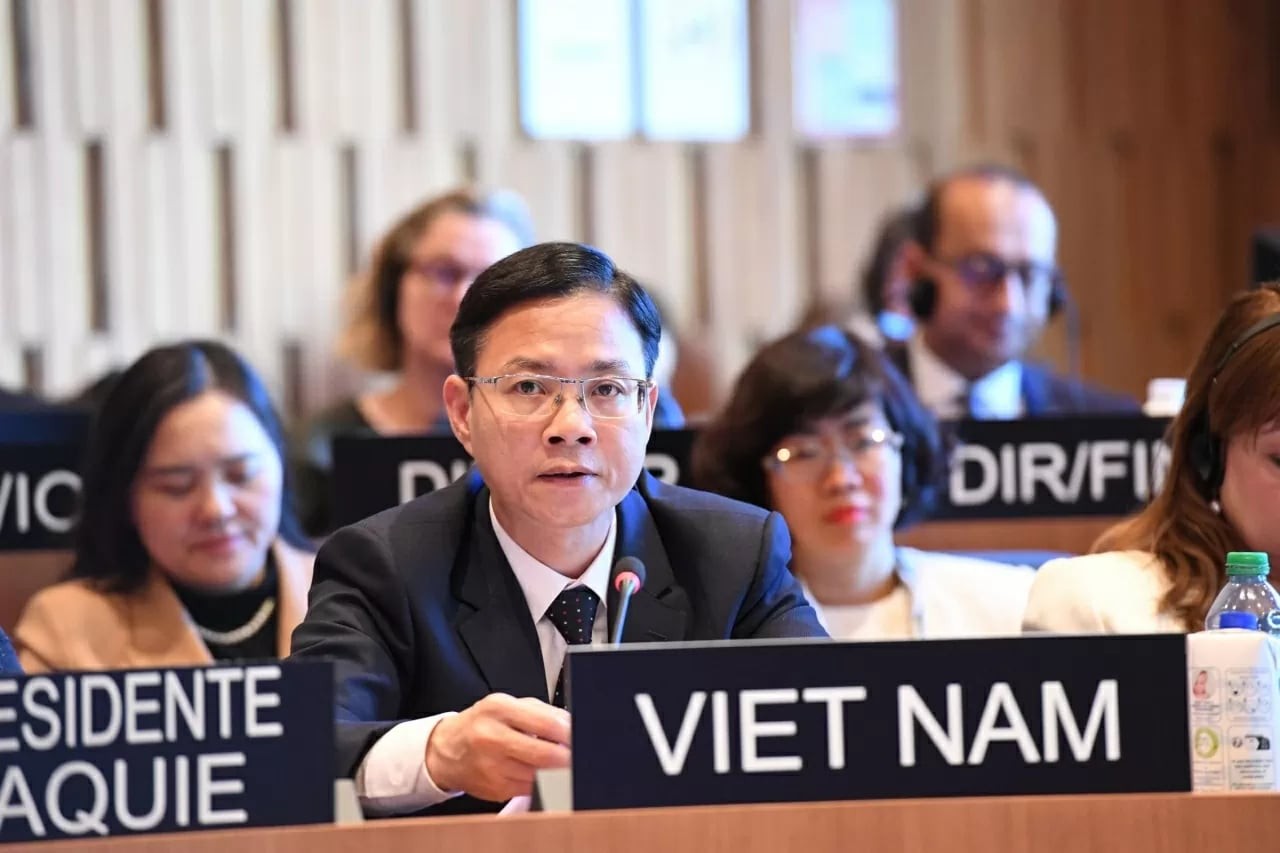 World
World
Vietnam Affirms Its Active and Responsible Role at UNESCO
 World
World
US Imposes 125% Tariff on China, Pauses Tariffs for 90 Days on Over 75 Countries
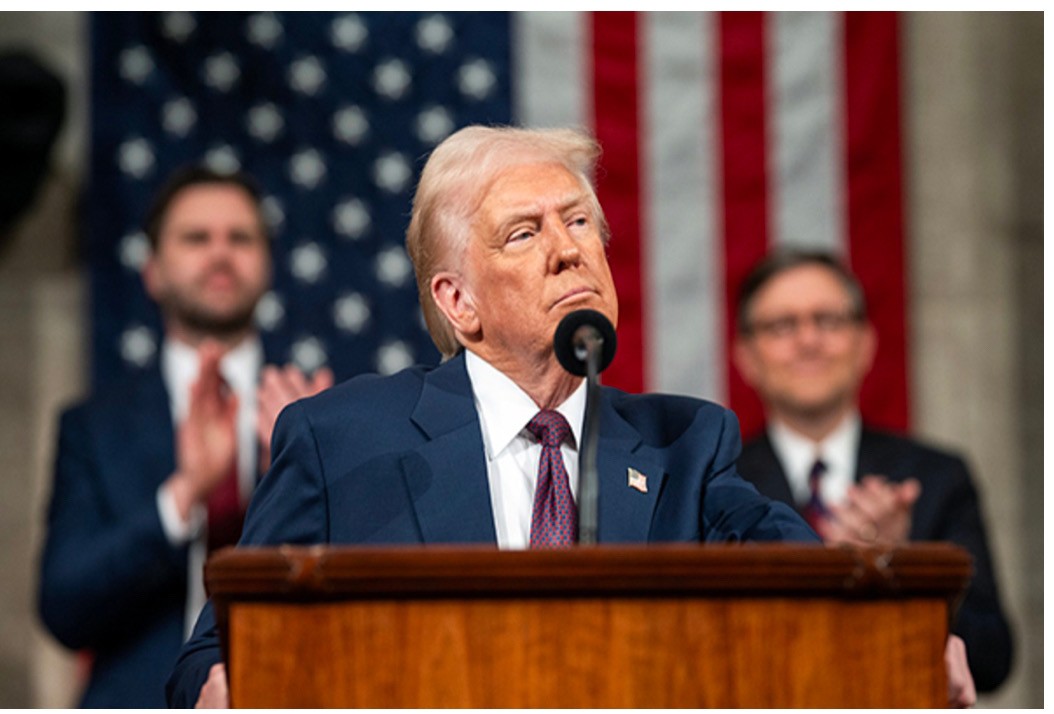 World
World
"Massive financial deficits with China, EU can only be cured with tariffs": Donald Trump
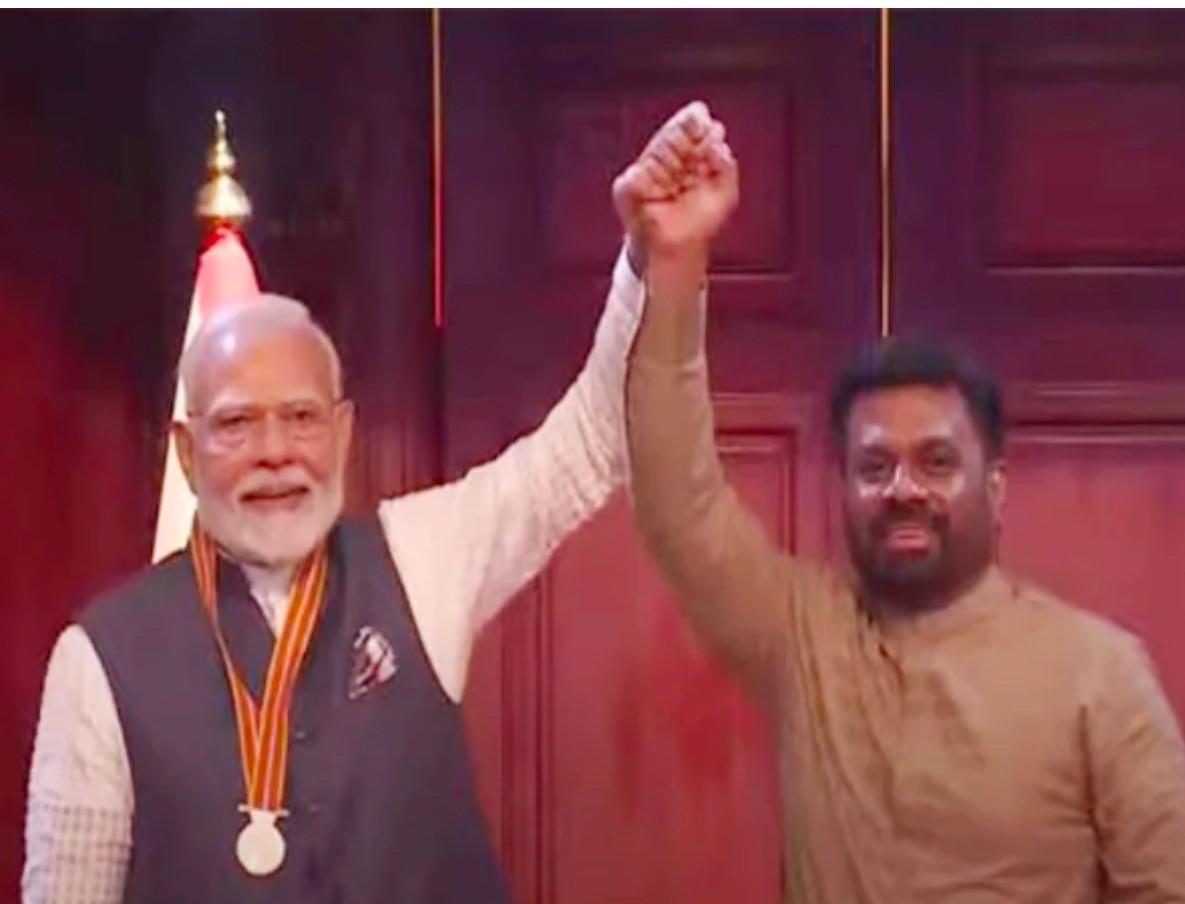 World
World
